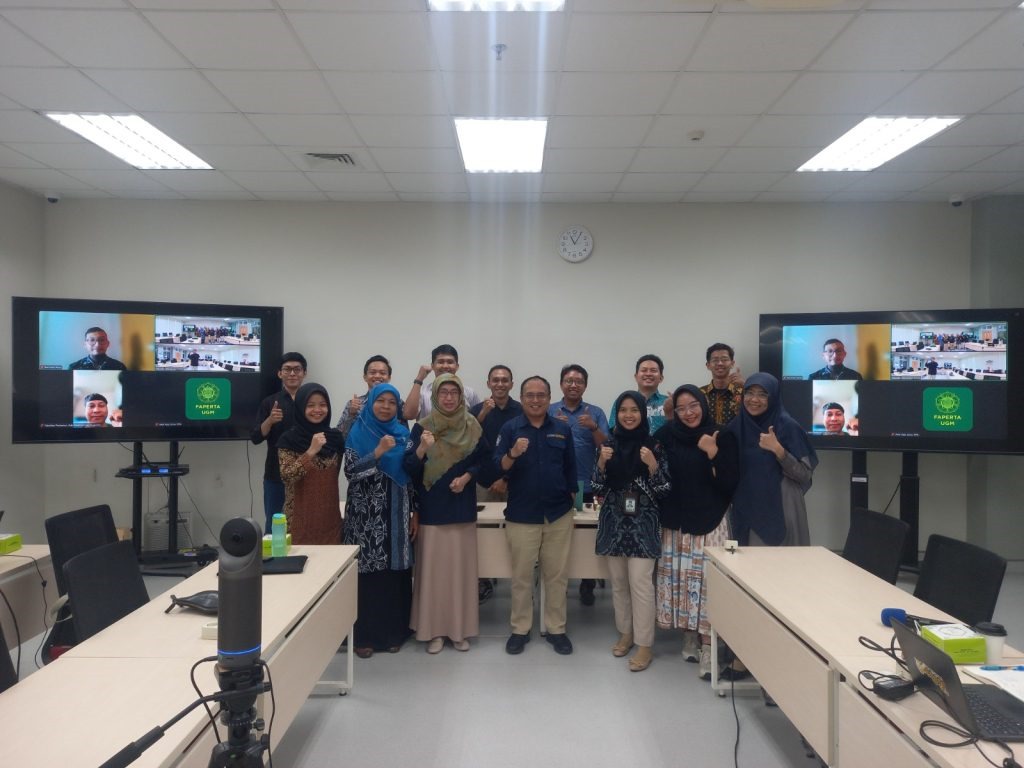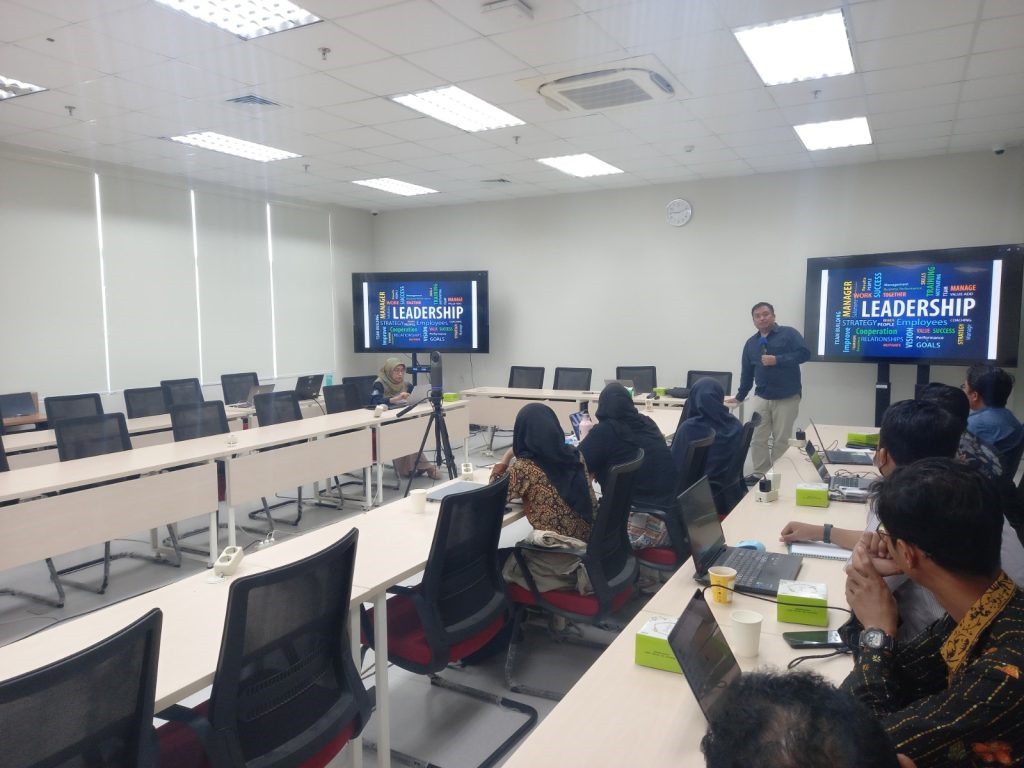
The Faculty of Agriculture Universitas Gadjah Mada (Faperta UGM), organized an orientation program for new lecturers on Wednesday and Thursday, 4-5 September 2024. The event was attended by all new lecturers, including prospective civil servants (CASN) and permanent lecturers appointed by the Rector, as well as departmental and faculty leaders. This program was designed to equip young lecturers with essential knowledge and skills before entering their teaching and research roles.
Held at the Venture Lab on the 6th floor of the AGLC Building, the orientation was opened by the Dean of the Faculty of Agriculture UGM, Ir. Jaka Widada, M.P., Ph.D. In his remarks, he emphasized the crucial role of lecturers in shaping outstanding graduates in the agricultural sector. He highlighted the values of integrity, innovation, and collaboration in the teaching process, while underlining the faculty’s vision and mission encapsulated in the tagline “Smart Eco-Bioproduction.” This vision consists of six pillars: crop, smart, eco, bio-production, agribusiness, and communication. By understanding this framework, new lecturers are expected to contribute actively and collaborate enthusiastically.

The program included presentations by various speakers, starting with Prof. Subejo, S.P., M.Sc., Ph.D., Vice Dean for Research, Community Service, and Cooperation. He outlined the faculty’s support and resources available to help lecturers excel in their respective fields, including output-based grants specifically for young lecturers. Discussions also addressed the challenges and opportunities in higher education today.
In addition, Dr. Dyah Weny Respatie, S.P., M.Si., Vice Dean for Academic and Student Affairs, introduced the faculty’s academic programs. She highlighted initiatives such as the International Undergraduate Class (IUC), the Asian International Mobility for Students (AIMS), and the Merdeka Belajar Kampus Merdeka (MBKM) program, emphasizing the need for active support from all academic staff, including new lecturers.
The participants expressed enthusiasm to contribute to advancing agricultural sciences and to support the faculty’s vision of becoming a center of excellence nationally and internationally. One participant, Yumechris Amekan, S.Si., M.Biotech., Ph.D., often referred to as Micky, from the Agricultural Microbiology Study Program, stated, “I hope to synergize and collaborate not only with lecturers in my department but also across other departments and faculties, to elevate the Faculty of Agriculture UGM both nationally and internationally.”
Similarly, Ishadiyanto Salim, S.Pd., M.Pd., a new lecturer in the Agricultural Extension and Communication Program, shared his aspirations:
“As a lecturer in the Agricultural Extension and Communication Program, I am deeply interested in agriculture, particularly in how innovation and technology can enhance agricultural outreach for farmers’ welfare and sectoral development. By joining the Faculty of Agriculture UGM, I feel I can directly contribute to shaping a new generation equipped to advance Indonesian agriculture.”
On the second day, participants were introduced to topics related to finance, assets, and human resource management, presented by Dr. R.A. Siti Ari Budhiyanti, S.T.P., M.P., Vice Dean for Finance, Assets, and Human Resources. She discussed Rector Regulation No. 11 of 2023 concerning Human Resource Management, which outlines the duties, rights, and responsibilities of lecturers.
The program concluded with presentations from the heads of various departments, including Agricultural Socioeconomics, Agronomy, Agricultural Microbiology, Plant Pest and Disease, Soil Science, and Fisheries, followed by an introduction to general administration led by the Head of the Administrative Office, Agus Sudarwinto, S.E., M.M. Agus provided explanations about procedural requirements for correspondence, permissions, and other administrative matters.
Through this program, the Faculty of Agriculture UGM reaffirms its commitment to providing quality education and actively contributing to achieving the Sustainable Development Goals (SDGs), including SDG 1:No Poverty, SDG 2: Zero Hunger, SDG 4: Quality Education, SDG 10: Reduced Inequalities, and SDG 17: Partnerships for the Goals.
Writer: Desi Utami, Ghorizatu Shofra
Editor: Hanita Athasari Zain
